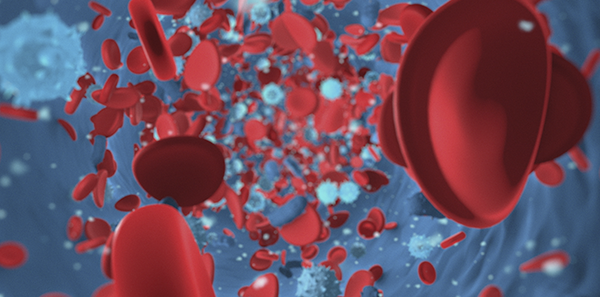
Blood pressure (BP) measures the force exerted on artery walls by blood as it’s pumped by the heart around the body, enabling it to reach all the tissues correctly and provide them with the oxygen and nutrients they need to function properly.
Two parameters are used to measure BP:
- Normal values between 130/90 mmHg (systolic) when the heart pumps blood to the arteries.
- Normal values between 60/90 mmHg (diastolic) between beats, when the heart relaxes.
Everyone has their own average BP values that usually fall within these ranges. As reference point, the set limit is 140 mmHg for systolic blood pressure (maximum) and 90 mmHg for diastolic blood pressure (minimum). If either of these two figures (140/90) is exceeded, it will be considered hypertension.
Why does hypertension occur?
It happens because of the sustained increase in pressure exerted on the walls of the arteries over time.
The blood vessels are subjected to permanently high pressure and the arteries harden (arteriosclerosis), favouring the deposit of cholesterol, triglycerides, calcium, etc., which hinder blood flow. It’s the biggest and most frequent risk factor for cardiovascular diseases (heart attack, heart failure, stroke, etc.).
Preventive measures
- Reduce excess weight and monitor waist circumference
These are two fundamental aspects for bringing blood pressure under control. If you are overweight, shedding a few kilos can help lower your BP.
- Take regular exercise
It’s important to exercise according to an individual’s age and physical condition. Generally speaking, 30 minutes a day can be very useful for preventing high blood pressure from turning into hypertension, or for controlling it if you already have it. Some options are walking, running, cycling or muscle-strengthening exercises.
- Eat a healthy, low-salt diet
Eating a diet that contains fruit, vegetables, dairy products, whole grains, that’s low in fat and also low in sodium, lowers high blood pressure. This can be achieved by cooking with other spices, not consuming processed foods and buying low-sodium foods.
- Avoid alcohol and stimulants (such as caffeine)
Drinking alcohol, in addition to increasing blood pressure by several points, can interfere with the effectiveness of blood pressure medications. Caffeinated beverages can also increase heart rate, which affects blood pressure.
- Don’t smoke
- Practice good stress and anxiety management
As well as harming people’s well-being, stress and anxiety can contribute to hypertension.
Alongside this, special care should also be taken with kidney disease and the use of anti-inflammatories.
If you have high blood pressure, as well as observing these guidelines to control it, it’s important to have good lifestyle habits and follow up with health professionals to monitor your progress.












